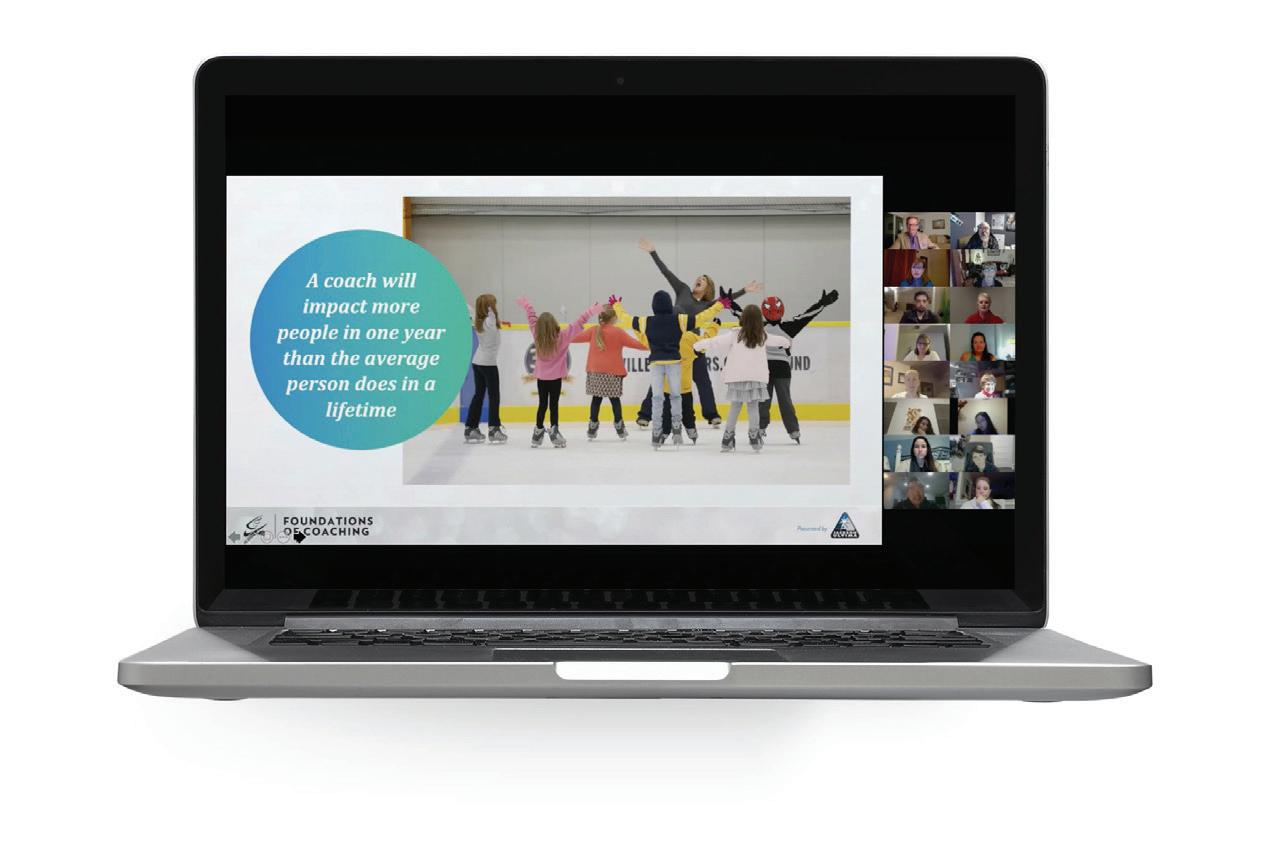
3 minute read
FCC: A Solid Foundation to Build Upon
PSA's Foundations of Coaching Course
By Terri Milner Tarquini
Advertisement
Terms such as “new coach” or “entry-level coach” are somewhat ambiguous, as every coach must start somewhere.
“No matter how successful you were or are as a skater, it is a different journey and experience when you start to coach,” said Alex Chang, PSA President. “There are always new things to learn as the sport evolves.”
That’s where the Foundations of Coaching Course (FCC) comes in.
Previously a one-day, in-person seminar, when COVID dictated that two FCC sessions be cancelled, a reimagined course came together.
The “new” FCC is a 12-week online course that meets twice a week via zoom.
The course covers a multitude of topics, including: planning and goal setting, basic skating mechanics, basic mental skills, safety in sport, and values and ethics—all valuable for coaches at any level, but, particularly, the initial gatekeepers of the sport.
“These coaches are often the most important coach these skaters will have because, along with everything else, they also teach the love of skating,” said Heidi Thibert, PSA Senior Director of Coaching Development. “Without the love, there is no future for our sport.”
While the FCC was one of many PSA offerings that were forced to shift to an online platform, out of necessity can come new benefits.
“This longer, twice-a-week format allows them a real opportunity to learn, absorb, and reflect,” Chang said. “It’s not just trying to take in everything quickly; it gives them time to process.”
However, the main thrust of the course has held fast.
While this session was originally limited to 30 coaches, it filled up quickly, so another ten spots were added. In addition, the volunteer faculty are invited to all the sessions, so the twice-weekly classes, typically between 60-90 minutes each, often have 45-50 participants.
“There is a real spectrum of participants,” Chang said. “Group coaching has really expanded into all levels—even the higher levels—so this is an opportunity for coaches who want to have a broader foundation and more resources to learn from.”
With the financial challenges currently experienced by coaches, the $75 price point for the course was intentional.
“The skating industry is going to take a huge hit and there is going to be an impact to coaches – the number of coaches, what they can earn, and whether they can survive,” Thibert said. “It was super important that we give them something that is affordable. This is a course that shines the light on basic skating so it is certainly something that would be beneficial for rinks or clubs to provide for their coaches.”
While skating life will certainly continue to return to normal, the reimagined FCC is likely to stick around.
“For so much of our programming, we will still continue to offer virtual formats,” Chang said. “This much immersion at that low of a price point is so valuable even once we are past this and in-person formats have returned.”
Beyond the developmental concepts a course like this offers, are PSA perks. Once coaches finish the course and submit a completed FCC companion workbook for faculty review, they earn 24 educational credits, a Foundation of Coaching Course certificate of completion, a PSA basic membership (for non-members) and a Basic Accreditation Rating.
“Following the completion of the reimagined course, we are really going to reflect on what we presented and how it was received,” Thibert said. “We’ll really evaluate the feedback and discuss what worked and what we can do better.”
At the heart of what needs to work is the joy of skating.
While the course is loaded with a plethora of coaching tools and information for coaches of entry-level skaters, the developmental possibilities for more experienced coaches look the same.
“At the end of the 12 weeks, I hope every coach has renewed confidence and trust in their own coaching abilities – and enough a-ha moments to keep them reaching toward being an even better coach,” Chang said. “The best coaches have never been afraid to pull back the veil to make themselves better.”










